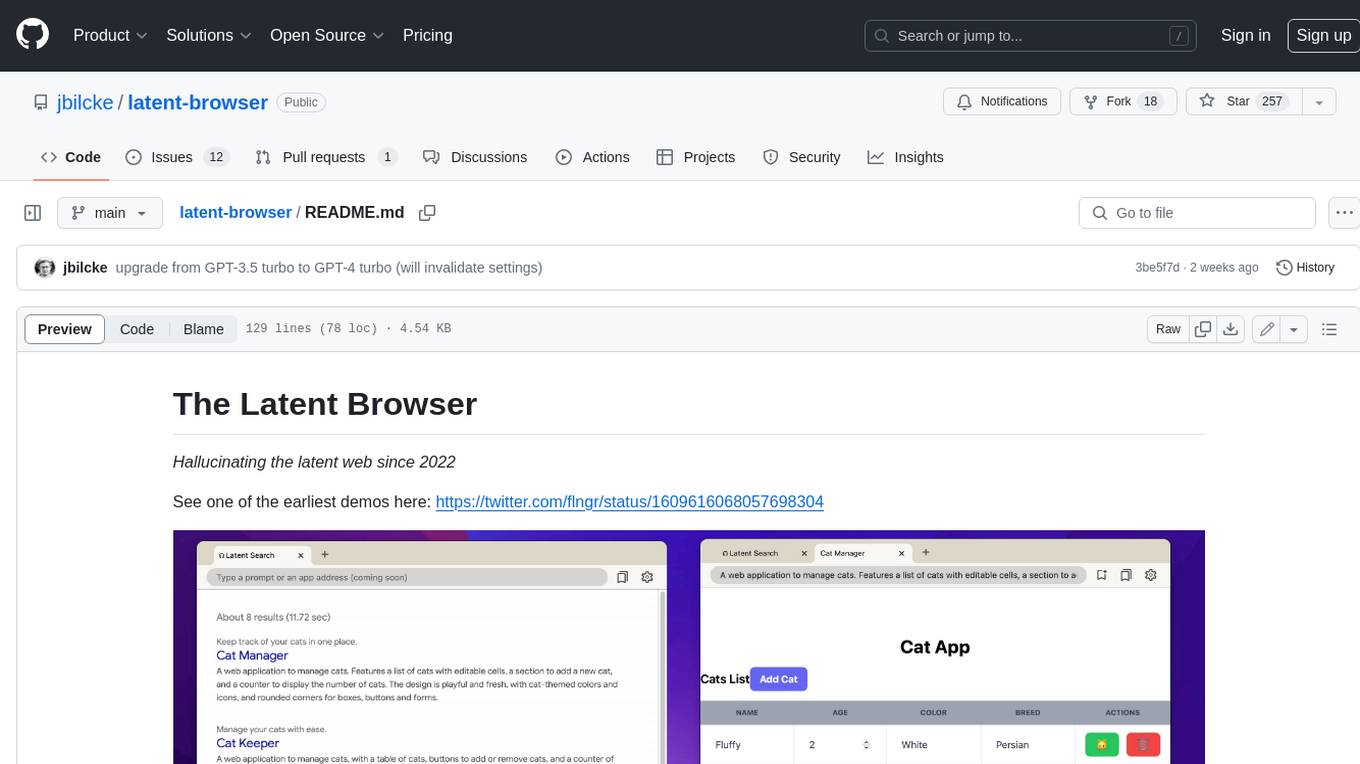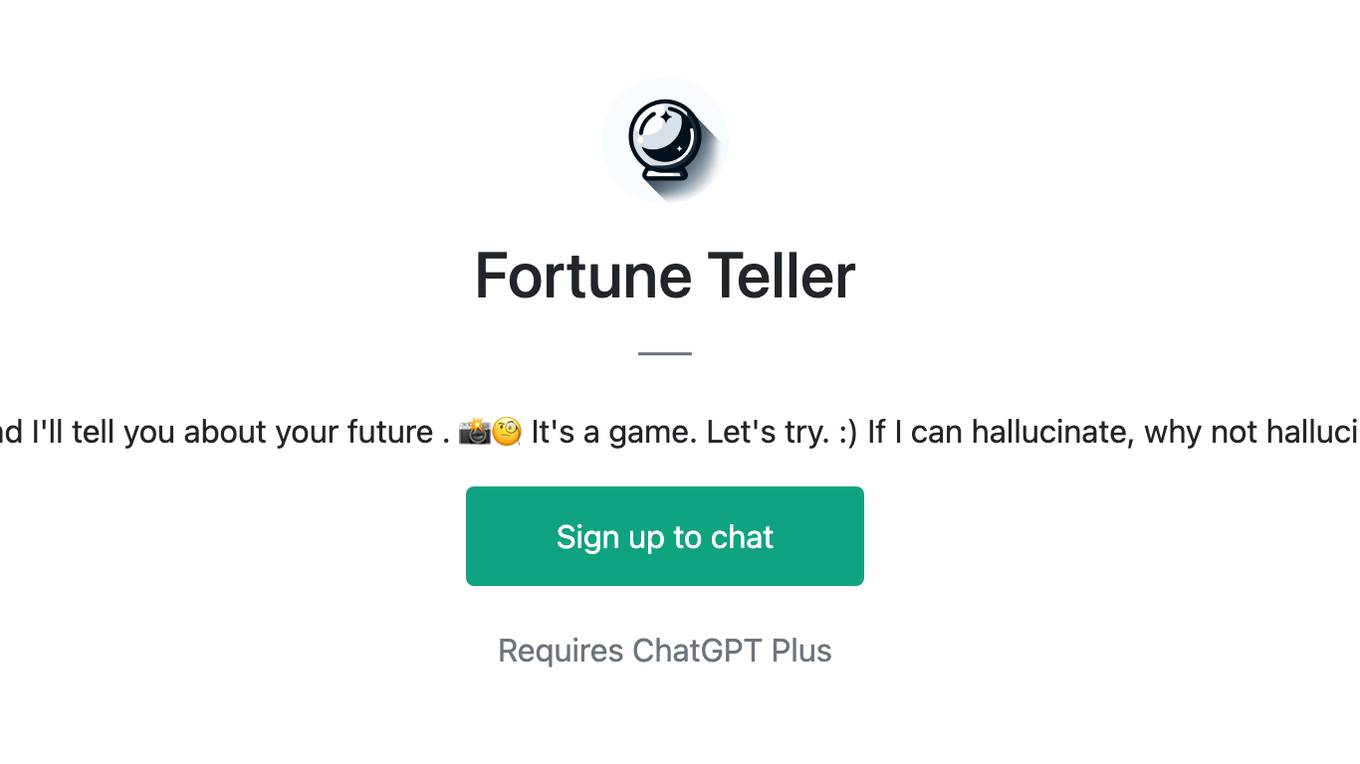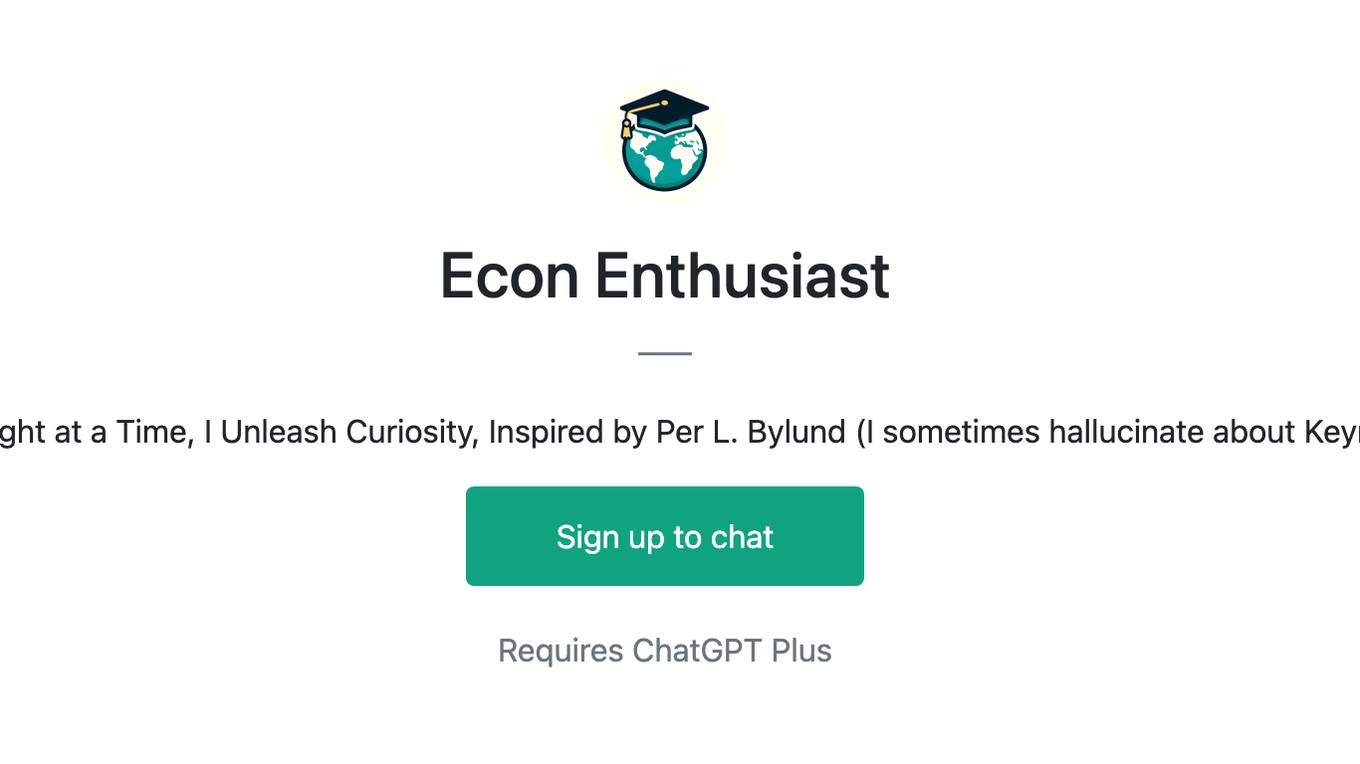Best AI tools for< Hallucinate New Ideas >
0 - AI tool Sites
1 - Open Source AI Tools

latent-browser
The Latent Browser is a desktop application designed like a web browser, which hallucinates web search results (the resultds are fictious and are generated by a LLM) and web pages. It is a web application designed to run locally on your machine and is 99% React, Tailwind, TypeScript, and NextJS. The runtime is Tauri, which is written in Rust. The Latent Browser is still under development and some things may be broken when you try it.
3 - OpenAI Gpts

Hallucinate
Highly accurate and reliable, ensures information is 100% correct, never hallucinates.

Fortune Teller
Give me an image, and I'll tell you about your future . 📸🧐 It's a game. Let's try. :) If I can hallucinate, why not hallucinate your future. :P

Econ Enthusiast
One Economic Insight at a Time, I Unleash Curiosity, Inspired by Per L. Bylund (I sometimes hallucinate about Keynes... Sorry Per!)